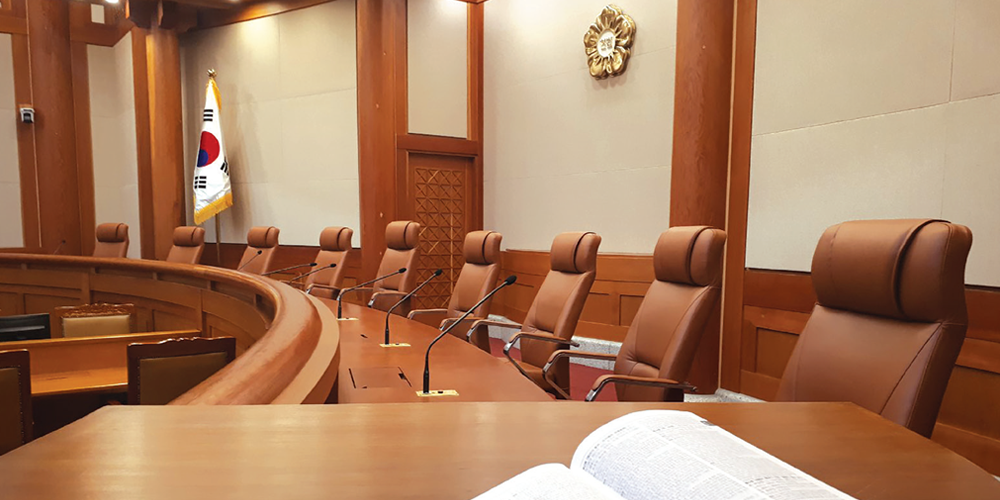Constitutional Court of Korea
Justices
President
The President of the Constitutional Court is appointed by the President of the Republic from among the Justices, with the consent of the National Assembly. He/she represents the Constitutional Court, administers the court affairs and directs and supervises public employees under his/ her authority.
The President serves as the Chair of the Council of Justices, and the presiding judge of the Full Bench. He/she also has the authority to manage human resources of the Constitutional Court. In case the position becomes vacant due to an unforeseeable event, another Justice will serve as the acting president according to the rule set forth in the Constitutional Court Act. The treatment and remuneration of the President is the same as that of the Chief Justice of the Supreme Court.


Justices
The Constitutional Court is composed of nine Justices qualified to be court judges and appointed by the President. Among them, three Justices are appointed from persons selected by the National Assembly, and three appointed from persons nominated by the Chief Justice of the Supreme Court. The Justices exercise jurisdiction in judgments as a member of either the full bench or panel. As members of the Council of Justices, they exercise voting rights on important matters concerning the administration of the Constitutional Court. In the event the term of a Justice expires or a vacancy occurs during the term, his or her successor shall be appointed within 30 days from the date on which the term expires or the vacancy occurs. If the term of a Justice who was elected by the National Assembly expires or the vacancy occurs during adjournment or recess of the National Assembly, the National Assembly shall elect his or her successor within 30 days from the commencement of the next session. The Justices may serve renewable terms of six years and shall retire at the age of 70. No Justice shall be removed from office against his or her own will, unless impeached or criminally sanctioned with a sentence of imprisonment. The treatment and remuneration of a Justice is the same as that of a Justice of the Supreme Court.